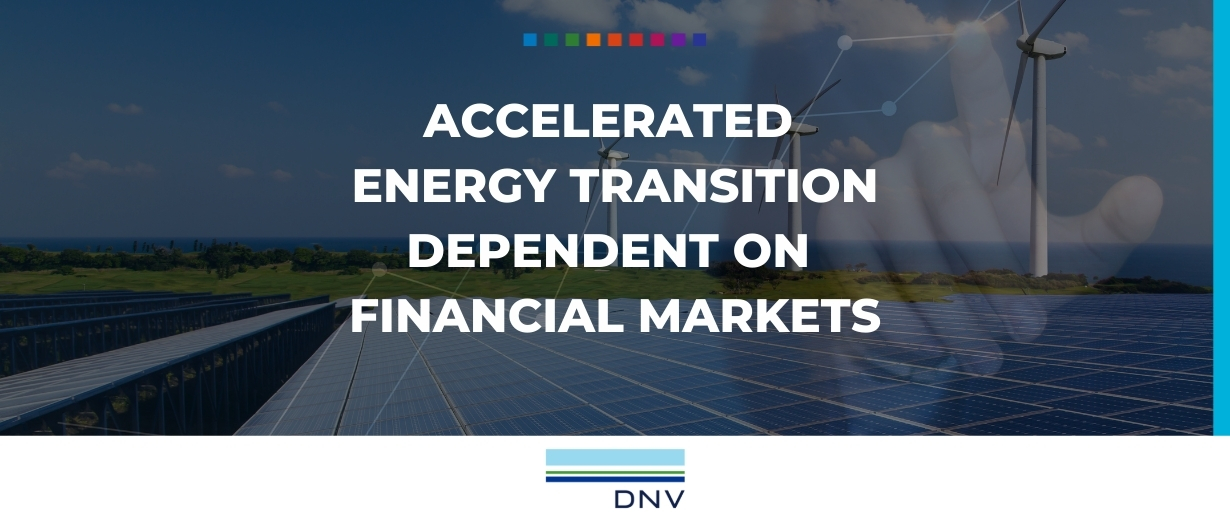Ditlev Engel, CEO, Energy Systems at DNV, will unveil significant global analysis of the opportunities and challenges policymakers, financiers, energy companies and developers face in financing the energy transition, in London on September 30.
Financing the Energy Transition, a key element of DNV’s international Energy Transition Outlook research, will be presented by Engel together with speakers from finance, policy, and the energy industry.
Macquarie Capital, energy multinational Equinor, the Public Service Electric & Gas Company of New Jersey, the Philippines-headquartered Asian Development Bank, global private equity investor EQT Partners, and Dutch pension investor APG are among the many major organisations that informed the findings.
The report combines the views from these key players with results from DNV’s independent forecast of the world’s energy system to 2050, to explore how to ensure an affordable, accelerated, and just transition.

Ditlev Engel, CEO for Energy Systems at DNV, says:
“We should remember that it is carbon that is the enemy. The dire effects the climate crisis will have on people’s lives, on societies, and on the environment compels us to spend carbon and capital much more wisely. Any actions that reduce carbon emissions are welcome, so long as they do not lock in greater emissions in the long term.
Capital must flow into projects with the most potential to reduce emissions, whether this is renewables and electrification in developed markets that are moving ahead at full speed, or for projects that are finding it harder to attract capital.
This relies on a change in mindset: to recognize the carbon budget is finite and to place it at the centre of decision-making, and to act urgently to reduce energy demand, scale-up clean energy, scale down fossil fuels, and to capture any remaining emissions.”
Support from policymakers at the right time has been proven to work in realizing decarbonized energy sectors. In the UK, government initially ‘overpaid’ for offshore wind electricity, ultimately giving life to the sector and enabling it to scale. The UK is now the world’s largest offshore wind market.
In many established markets for offshore wind, subsidies are long gone, yet investors continue to fund new projects.
Download your copy of Financing the Energy Transition here.
 Australia
Australia Hong Kong
Hong Kong Japan
Japan Singapore
Singapore United Arab Emirates
United Arab Emirates United States
United States France
France Germany
Germany Ireland
Ireland Netherlands
Netherlands United Kingdom
United Kingdom










Comments are closed.